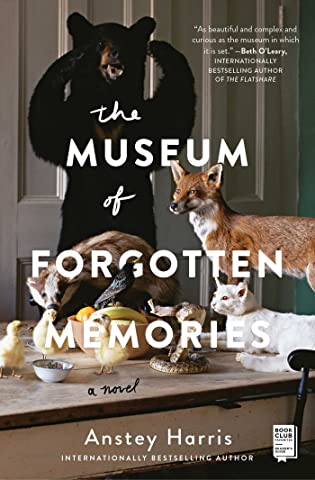 The Museum of Forgotten Memories by Anstey Harris
The Museum of Forgotten Memories by Anstey Harris Format: eARC
Source: supplied by publisher via Edelweiss
Formats available: paperback, ebook, audiobook
Genres: family saga, literary fiction, women's fiction
Pages: 336
Published by Gallery Books on November 3, 2020
Purchasing Info: Author's Website, Publisher's Website, Amazon, Barnes & Noble, Kobo, Bookshop.org
Goodreads
At Hatters Museum of the Wide Wide World, where the animals never age but time takes its toll, one woman must find the courage to overcome the greatest loss of her life—from the author of Goodbye, Paris.
Cate thought she’d met her match in Simon at university—until she laid eyes on his best friend, Richard. Cate and Richard felt an immediate and undeniable spark, but Richard also felt the weight of the world more deeply than most. As the three matured, he receded further and further into darkness until he disappeared altogether.
Now, four years after Richard’s passing, Cate is let go from her teaching job and can’t pay the rent on the London flat she shares with her and Richard’s son, Leo. She packs the two of them up and ventures to Richard’s grandfather’s old Victorian museum in the small town of Crouch-on-Sea, where the dusty staff quarters await her. Despite growing pains and a grouchy caretaker, Cate falls in love with the quirky taxidermy exhibits and sprawling grounds and makes it her mission to revive them. When the museum is faced with closure because of a lack of visitors, Cate stages a grand reopening, but threats from both inside and outside the museum derail her plans and send her spiraling into self-doubt.
As Cate becomes more invested in Hatters, she must finally confront the reality of Richard’s death—and the role she played in it—in order to reimagine her future. Perfect for fans of Evvie Drake Starts Over, The Museum of Forgotten Memories masterfully weaves life with death, past with present, and grief with hope.
My Review:
The Museum of Forgotten Memories sits on an uneasy border between literary fiction and women’s fiction. By uneasy, I mean one of those uncomfortable boundaries marked by a wooden fence, the kind that leaves splinters up your ass if you sit on it too long.
That’s appropriate, as the situation that Cate Morris is in when the story opens is uncomfortable in the extreme – and it looks like things will get worse before they get better. Not that she’s sure that they ever will. Get better that is.
And for a significant chunk of the story, they don’t.
When we first meet Cate, she’s in the process of packing up her London flat. She’s been laid off from her teaching position, she can no longer afford the apartment, and she’s been unable to find another position. She’s been forced by her circumstances to retreat to the only place she has left, Hatters Museum of the Wide Wide World in tiny, remote Crouch-on-Sea.
And that refuge that only exists because the museum belongs to her late husband’s family, and her son is permitted to live there whenever he wants to – or in this case needs to – as part of the trust that maintains the museum.
But this retreat is just as fraught as everything else in Cate’s current situation. Her husband committed suicide four years before, leaving her a mountain of debts and fractured memories of both their early happiness and his early life. The little he told her about Hatters and Crouch-on-Sea is sketchy at best and uncomplimentary at worst. And may have no resemblance to current or real truths.
Her son is 19 and was born with Down Syndrome. Leo lives a fairly independent life in London, but then Cate has crafted a circle of friends, activities and community in which he is occupied, stimulated and safe. The move, his reluctance to leave his friends and his incomplete understanding of the reasons why it is necessary only add to Cate’s stress.
As does her initial introduction to Hatters. The place is nothing like the trust agent told her, and the combination caretaker and museum manager is nowhere near as friendly or helpful as Cate was led to believe. And only seems too happy to inform her that her refuge may be even more temporary than she thought. The woman, who seems to be the proverbial old family retainer, tells Cate that the addition of herself and her son to the tiny museum household will push the budget so far into the red that they will be forced to close by the trustees who are eager to sell off the assets.
But it is those very assets that give this story its charm, and the secrets behind those assets that provide both the pathos and the ultimate redemption. Led by an entire host of strange, rare and wonderful animals, marvelously preserved, marching two by two into a brighter sunrise.
Escape Rating B: This is a story that needs an absolute ton of setup. It’s also a story where that setup just seems to pile the angst onto its protagonist, hence my early comment that this has a strong bend towards literary fiction. Not only is there a lot of setup in the first half of the story, but much of that setup consists of piling more stress and angst onto poor Cate. She just can’t catch a break and the story keeps pounding her into the dirt.
And then she gets a bit settled into Hatters and Crouch-on-Sea and things shift, in spite of her failed romance with a guy who turns out to be a con man and a thief.
As Cate finds her footing in the little town, so does her son. Cate begins to bring the museum out of its doldrums, and the town takes both her and Leo to its heart. The more that things seem to be getting better, the more forces seem to be arrayed in keeping them all down.
But they manage, with a lot of grit and a surprising amount of charm, to rise above and triumph.
In the end, the story which began as a deep dive into Cate’s many woes, turns itself into a much more interesting story about families and legacies, about the lies that bind and the legacies that strangle.
With that utterly marvelous museum sitting at the center of it all, and at the heart of what turns out in the end to be a terrific story. I just wish I hadn’t had to wade through that downer of a first half to get there.

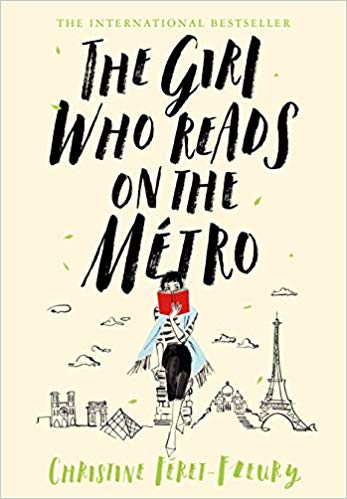 The Girl Who Reads on the Métro by
The Girl Who Reads on the Métro by 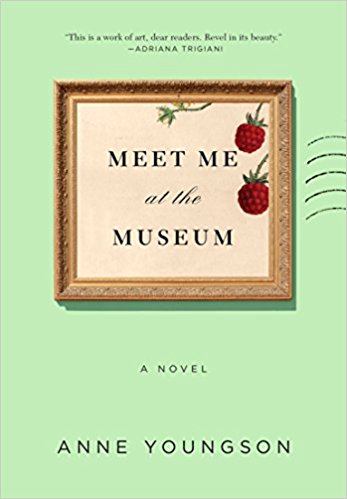 Meet Me at the Museum by
Meet Me at the Museum by 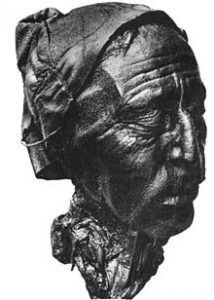
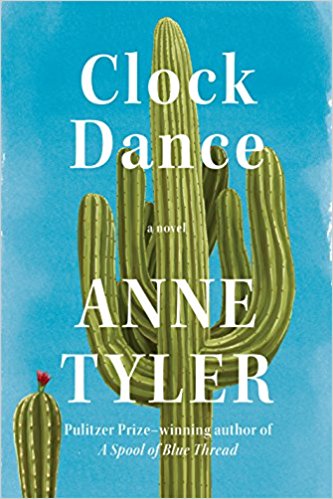 Clock Dance by
Clock Dance by 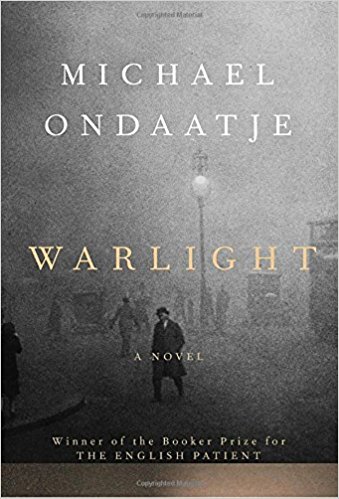 Warlight by
Warlight by 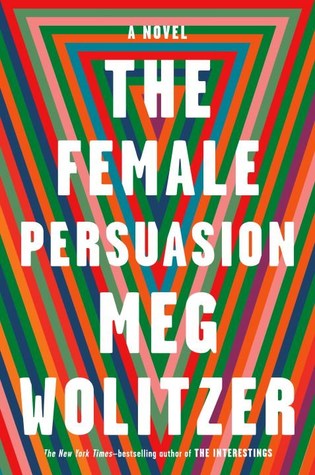 The Female Persuasion by
The Female Persuasion by 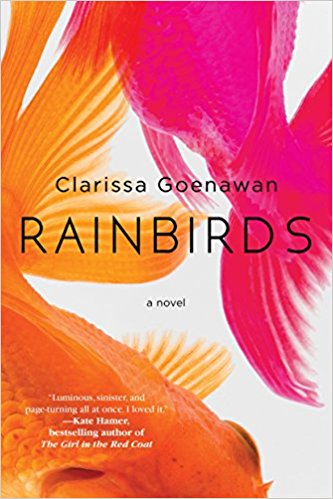 Rainbirds by
Rainbirds by 
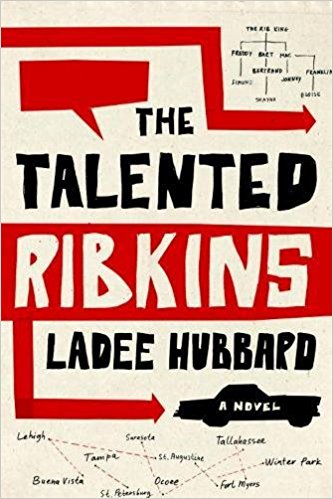 The Talented Ribkins by
The Talented Ribkins by 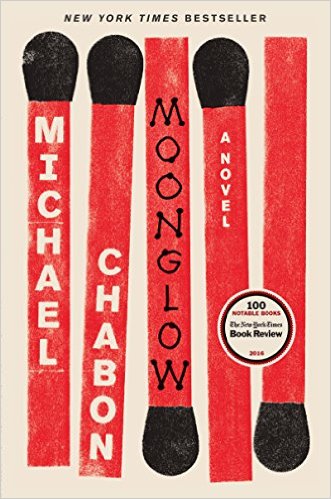 Moonglow by
Moonglow by 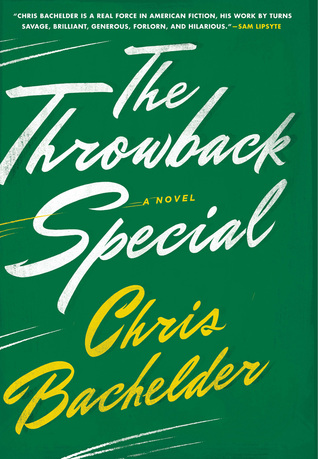 The Throwback Special by
The Throwback Special by